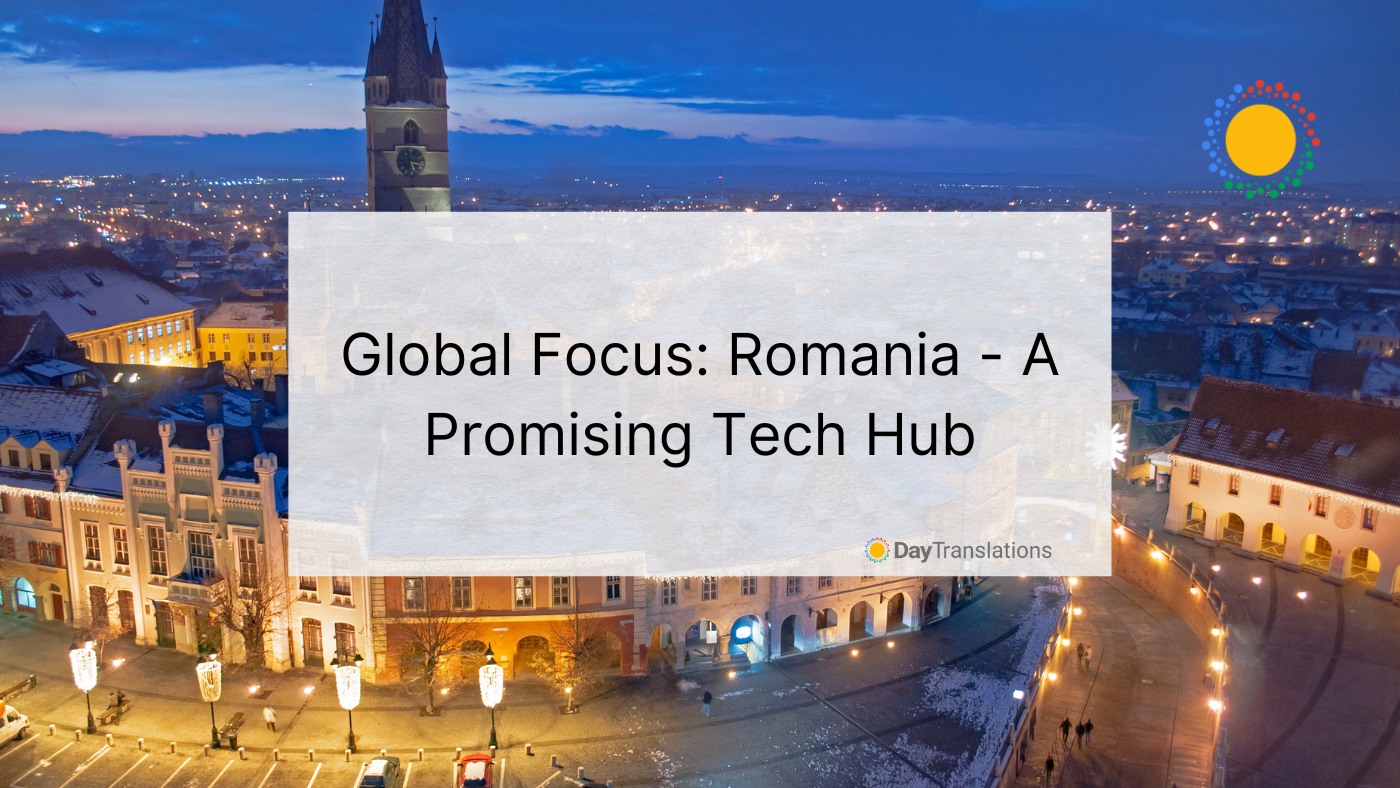Romania, the largest among the countries in the Balkans, is a developing country with a market economy. The country’s name was established in 1862. It gained its independence in 1878. It has been a member of the United Nations since 1955 and joined the NATO in 2004. In 2007, Romania became part of the European Union.
Economic growth of Romania
Romania, the capital of which is Bucharest, experienced fast economic growth in the early part of 2000. The country is known as a producer and exporter of electric energy and machines, with its economy particularly grounded on services. Tourism is also a major economic contributor. It again experienced economic growth recently. In fact, in 2018 Romania was classified as an upper-middle income country economy by the World Bank. Eurostat says that Romania’s economy is one of the fastest growing in the European Union. While the net average monthly wage is still one of the lowest in the EU, Romania also has a very low unemployment rate at 4.3%, measured in August 2018.
Owing to its vast reserves of shale gas and crude oil, Romania is energy-independent. In 2017, its estimated population was 19.6 million and out of it, about 18.3 million are connected to the Internet. Romania ranks 5th in the world and first in Europe in terms of Internet speeds.
Historical contributors to science and technology
Romanian scientists, inventors and researchers are known worldwide for their impressive contributions to science and technology throughout the country’s history. It is amazing that the list of scientists includes almost every letter of the alphabet except for U, X and Y.
Here are some of the most notable:
- Henri Coandă (Coanda effect of fluidics)
- George Emil Palade (cell biology)
- George Constantinescu (theory of sonics)
- Lazăr Edeleanu (modern methods in crude oil refining, first to synthesize amphetamine)
- Ana Aslan (inventor of anti-aging product called Gerovital, used by Salvador Dali, Charlie Chaplin, Indira Gandhi, John F. Kennedy, Charles de Gaulle)
- Ştefan Odobleja (cybernetics)
- Horia Hulubei (contributed to X-ray spectroscopy’s development)
- Șerban Țițeica (statistical mechanics and thermodynamics)
- Theodor V. Ionescu (inventor of 3D imaging for TV and cinema, hydrogen maser and multiple-cavity magnetron)
- Aurel Babeș (discovered vaginal smear works for cancer testing)
- George de Bothezat (inventor of quadrotor helicopter)
- Justin Capră (invented the jet pack)
- George Emil Palade (discovered ribosomes)
- Nicolae Paulescu (discovered insulin)
- Eugen Pavel (inventor of the 3D optical data storage medium – Hyper CD-ROM)
- Petrache Poenaru (inventor of the first fountain pen in the world)
- Victor Toma (inventor of the CIFA-1, the first Romanian computer)
- William F. Friedman (inventor of the Index of Coincidence method, which broke the PURPLE cipher of the Japanese, called the 97-shiki O-bun In-ji-ki)
Technology and science inclination
From the list above, it is easy to see that many Romanians are scientifically and technologically inclined, two industry sectors that are in great demand today. The country’s performance in mathematical and informatics competitions speaks for itself.
Since 1959, Romania has won 316 medals in the International Mathematical Olympiad. One of the most notable is Ciprian Manolescu who is now a mathematics professor at the University of California, Los Angeles. In the three times that he participated in the International Mathematical Olympiad (from 1995 to 1997), he wrote a perfect paper that each earned 42 points, qualifying him to win the gold medal. Romania places 6th overall, with a tally of 107 medals from the International Olympiad in Informatics.
One of the most promising hubs for startups
Today, Romania is one of the most promising hubs for many startups and investors in the European region.
It has raised €11.3 million in investment and €72 million in exits in 2016. From January to August of 2017, that investment reached €34.8 million. With the economy of Romania improving and growing, exciting times for entrepreneurs are expected to happen in the country.
Technology giants are quick to notice Romania’s vast reserves of tech talents. Vector Watch, a company in the UK that operates in Romania was bought by Fitbit. Romania’s app-based taxi service, Clever Taxi, which is considered as the biggest in the country, was acquired by mytaxi in June 2017. The latter is the biggest taxi e-hailing company in Europe, with 120,000 registered drivers and about 7 million customers.
According to Eric Friedman, the co-founder of Fitbit, he was impressed and reassured by the number of young entrepreneurs in Romania who are engaged in technology. He finds them full of imagination and possessing the ability to challenge the startups’ global ecosystem.
Several incubators and accelerators for startups are available in Romania. Spherik Accelerator for example gives assistance with funding, mentoring and marketing for young and ambitious entrepreneurs. Risky Business provides support for startups with acceleration support and up to €100,000 in funding. Risky Business also hosts a 2-day event for small business entrepreneurs called Startup Avalanche. The small business owners can talk about their business and present the potential of their products for a total of six minutes. The 2017 event gathered over 40 speakers and over 1,500 very interested participants. Some of the well-known speakers were Alexis Bonte, CEO and co-founder of eRepublik Labs Ltd. and Angel Labs co-founder, Tugce Ergul.
The country is attractive as a location for investors because of the very low cost of living, which is about 47% lower than the United States. Moreover, the digital infrastructure of Romania is much higher than the other countries in Eastern Europe. Further investments in the startup sector will definitely help boost the small business entrepreneurship in the country.
In 2017, several small businesses managed to secure additional investments that ranged from thousands to millions. Some of them include:
- UiPath (provider of robotic process automation for the enterprise software)
- dcs plus (travel and tourism tech company)
- Zitec (software development company)
- SmartDreamers (recruitment platform that simplifies the connection between growing companies and candidates)
- Frisbo (e-fulfillment company)
- Blugento (Magento e-commerce solutions)
- Ebriza (virtual cash register)
- FishPointer (a fishing app)
- SkillView (IT&C companies’ online interviewing platform)
It is very interesting to note that the Entrepreneurial Employee Activity (EAA) of Romania is 3.4%, which is at par with the EAA of Germany and higher than other established countries, including Italy, Poland, Spain and France. EAA denotes persons who decide to start new projects or ventures while still employed (but not starting a business of their own).
Factors that could lead to further growth
It can be said that the startup scene in Romania is already bustling, but it could get a further boost when other factors learned from other startup ecosystems are implemented and put into place. Here are some ideas:
- More government support including establishment of councils to create new policies.
- Make it easier for entrepreneurs to register their businesses by reducing bureaucratic bottlenecks through a dedicated web portal.
- Empower a culture of entrepreneurship with innovations in research and development; collaboration among SMEs; and easier access to venture capitalists, including offering tax incentives to investors.
- Introduce entrepreneurial education through innovation labs, entrepreneurial classes, university pre-accelerators, and hosting symposia and seminars with business people, angel investors and experienced entrepreneurs as speakers.
Romania’s startup scene
Among the startups in Romania right now, the most promising and in fact, the first in rank is Themeisle. The company creates fantastic themes for WordPress. Its flagship theme is called Hestia, which the company claims to be the #1 material design theme for WordPress.
In the website of RomanianStartups.com, the database includes 5 incubators/accelerators, 348 founders and 169 startups, but this is not conclusive as the portal is still very new and many of the startups are still not listed.
The startup scene in Romania has seen several success stories, like what happened to Themeisle. Another example is The Pole, a mobile app that allows users to create, edit and find posters for local events and directly stream them to the digital screens installed around Bucharest.
Moqups.com is an HTML5 App. It is capable of creating website prototypes and mock ups.
Another is Twotap.com, an e-commerce gateway, an in-app ordering system for mobiles.
Bigstep was launched in 2013. It is an Infrastructure as a Service (IaaS) program with super-fast cloud platform, enabling users to process Big Data at high speed and large volumes. It enables companies to access professional analytics solutions.
Although Romania’s startup scenario is promising, it still needs more support from all stakeholders, including the government. It has the infrastructure, although it could still be improved, a wealth of tech talents and the interest from accelerators, incubators and investors. With the successes already earned by several Romanian startups, it is only a matter of time and incentives to ensure further success.
Business translation solutions
Things are beginning to look exciting in Romania. If you are interested in setting up your startup company in Romania or you want to invest in one of the promising startups in the country, you need business translations services. Day Translations, Inc. works with over 100 languages, including Romanian. Make sure that your documents and all of your written communication are properly translated into the language that your partners speak and understand. Our professional translators who live in-country are all native speakers. They deeply understand the culture and the language, including its nuances.
You get 100% accurate translation from our translators, in the fastest time possible. Our subject matter experts are professionals with extensive experience in various fields, such as science and technology, and will be able to deliver translations using the right language and terminology of a specific industry. Whenever you need translation services, call Day Translations, Inc. a professional, human powered translation company that offers a full suite of language services. We are open 24/7, all days of the year, so you do not have to wait. You can send us an email here (Contact us) or call us at 1-800-969-6853 at your convenience.














Sorry, the comment form is closed at this time.